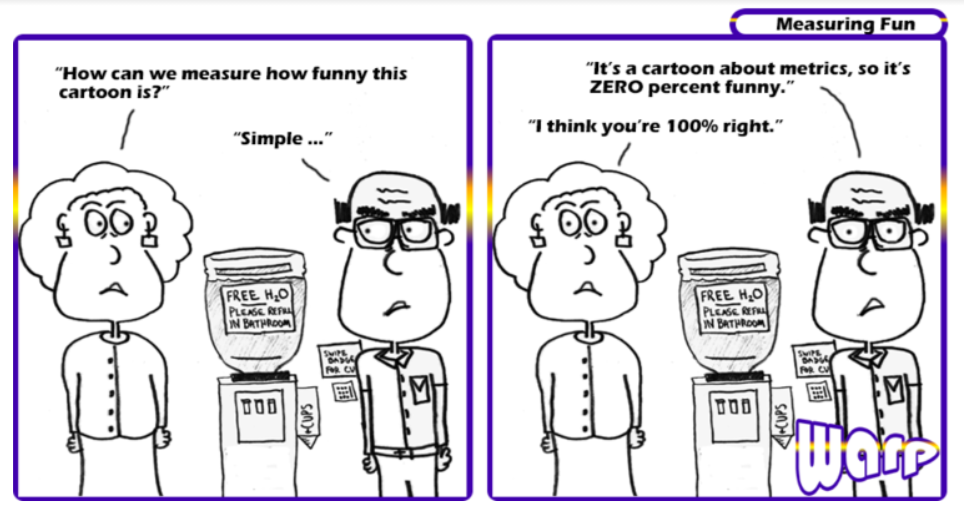Blinded by Metrics
- jlondon4
- Aug 15, 2018
- 2 min read

In recent years, we have become a species of metrics. The mantra, “If you can’t measure it, it doesn’t matter” has permeated all aspects of our lives. We now use metrics for our kids’ chores, our physical activity, and our friendships. What are we missing as we blind ourselves with metrics?
Not everything can be measured. It’s a radical thought. Can you measure happiness? Can you measure trust? Many have tried, but something always seems to be missing.
“
Not everything that counts can be counted, and not everything that can be counted counts.
— Albert Einstein
Metrics narrow the band of possibility. The benefit of metrics is that it gets people focused and aligned. The other side of the coin is that metrics get people too focused, where they miss ancillary factors that might have a big impact. An example of this is the project management practice of connecting people solely on task coordination. We’ve narrowed the relationship to become a transactional interface between people. Any possibilities that exist outside the transaction are ignored.
Metrics promote short-term thinking. How many times have you seen a company cannibalize their future in order to pump up the stock price? Cost cutting is a classic example of this, companies get addicted to cost-cutting and drive themselves right out of business. Metrics promote short-term thinking because big picture thinking is discouraged. Sometimes this can be good because it gets people focused on delivering value early, and sometimes it can cause a company to shoot itself in the foot.
Bad stuff can happen. It seems whenever we read about a company acting unethically, it ties back to metrics. We heard with Wells Fargo, “They were measured on the number of new accounts, so they opened new accounts for customers without permission.” They weren’t measured on happy, safe clients, they were measured on new accounts. We see it over and over. It’s easy to judge these companies and say “tsk tsk, they had a toxic culture, and bad people working there.” Yet the real culprit here is the over-use of metrics.
Educate and Model how to use Metrics for Good. Educating your team on how to use metrics can help you avoid the pitfalls.
Metrics are directional indicators, not contracts
Metrics are one indicator, not the only indicator
Metrics are not the center of the world, relationships are the center
How have metrics affected your world? Let us know!





Comments